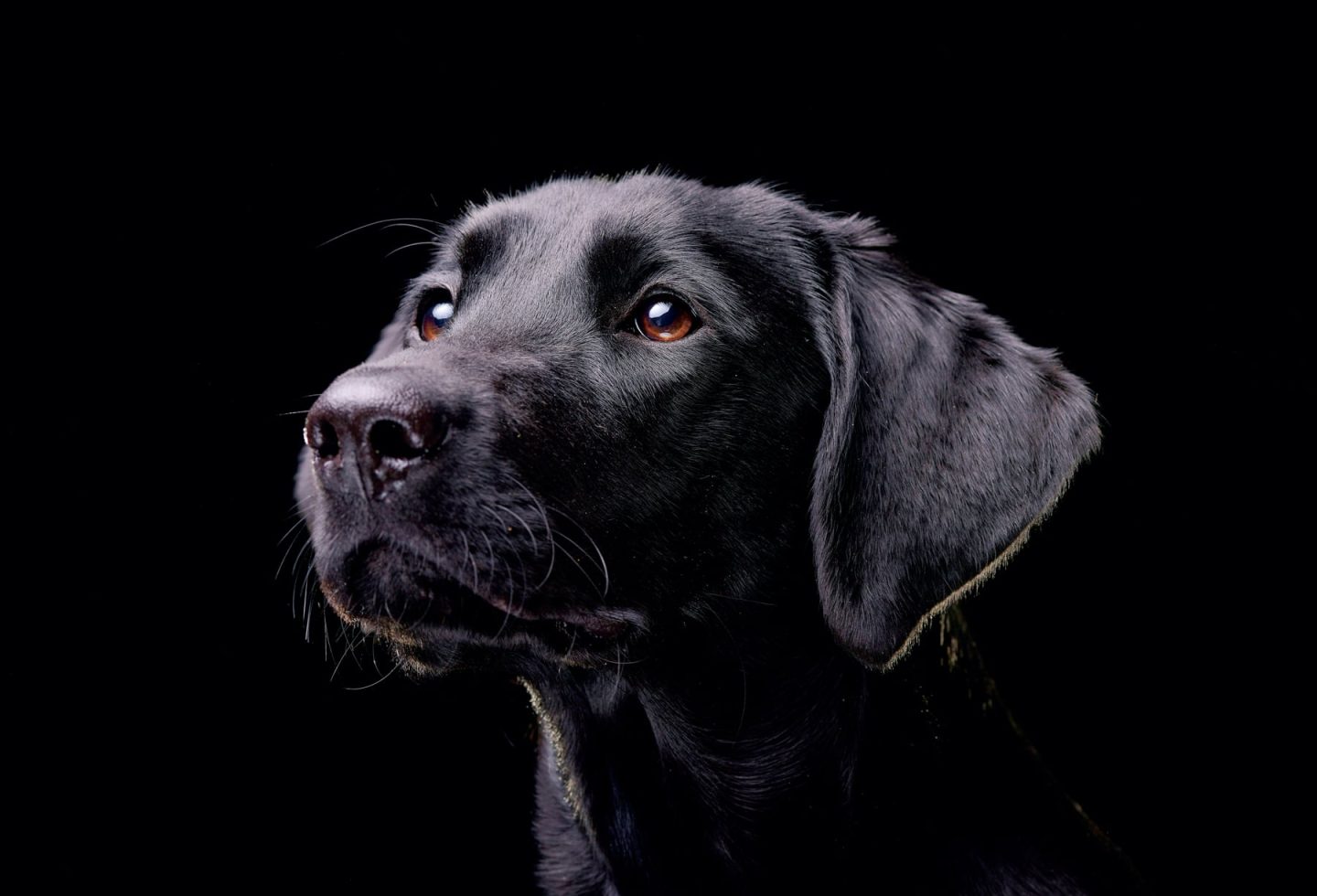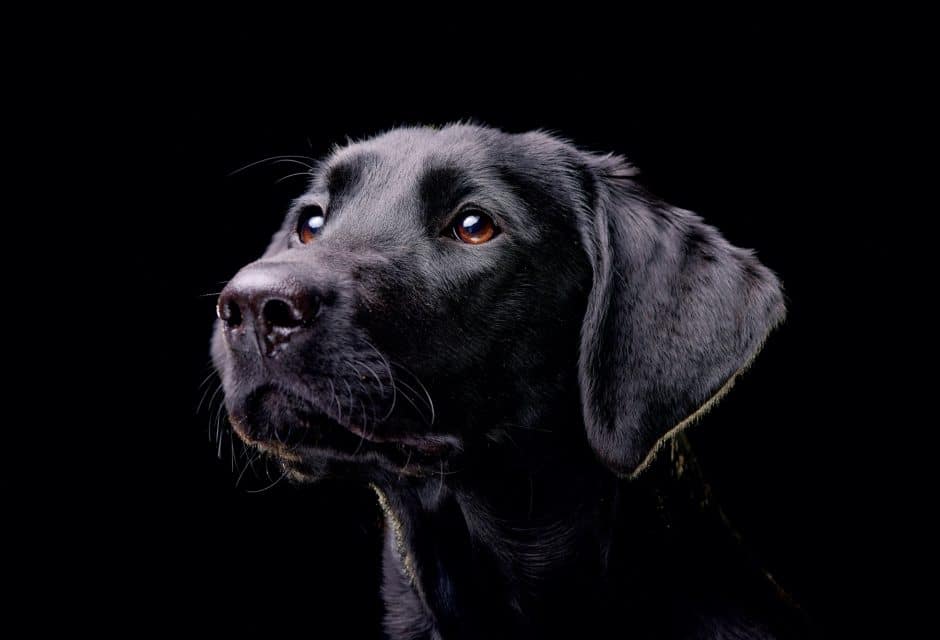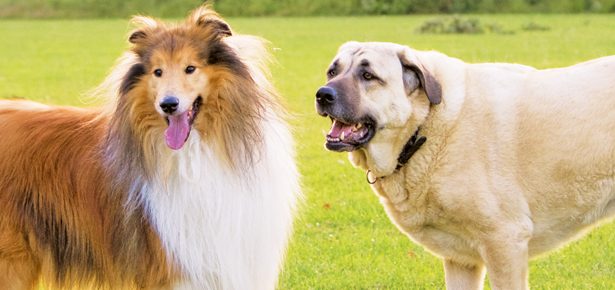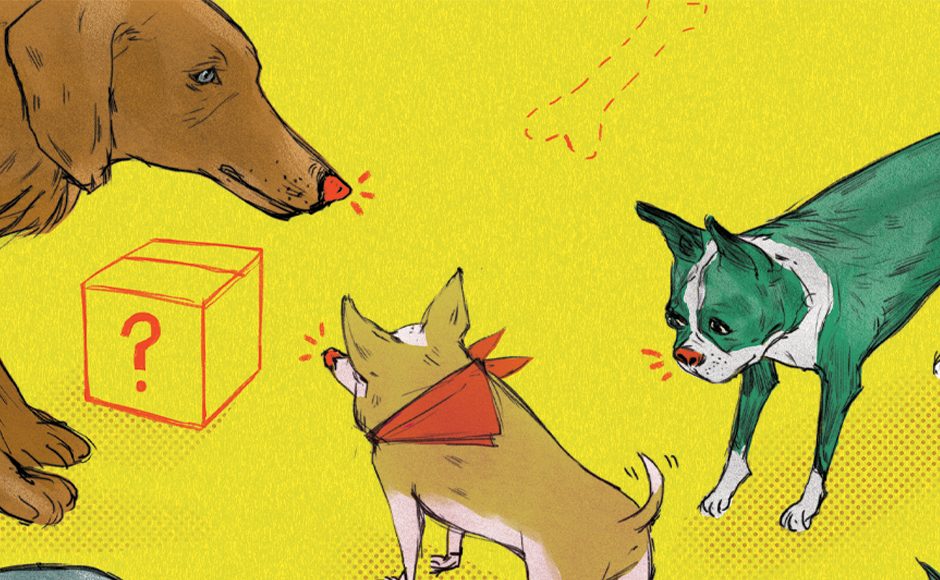

Dog Smarts: The Unique Intelligence of Dogs
Maybe you’ve had a moment like this: You’re out walking your dog after work when suddenly she stops, peering into the distant dusk. You have no idea what’s so interesting out there, but your dog’s paws have become concrete blocks and your cajoling and tugging on the leash has no effect. The word “stubborn” comes to mind, maybe even “stupid.” After all, you see nothing of note. You’ve had a long day and just want to flop on the couch and watch Netflix.

Oszkár Dániel Gáti/Adobe Stock
Of course, your dog’s not stupid. (Stubborn, maybe; I have two dogs. Ask me how I know.) Take another look: Your pup is standing stock still, neck low, ears and nose twitching, eyes like darts through the haze. Clearly something is worth their attention, maybe even yours. But the slightly embarrassing truth is, you just don’t have the sensory tools to detect this fascinating something, nor the cognitive ability to understand its allure.
Dogs walk right beside us through life, but science reminds us they’re experiencing a very different version of the world. Their noses are fantastically sensitive, able to sniff out a smear of blood at a messy crime scene, a chip of bone from skeletal remains turned to dust, a gas leak way underground, even an epileptic seizure a half hour before it happens. Dogs’ ears hear in a different range than ours, with an emphasis on the high, squeaky end of the scale—all the better to locate a rodent nest—and they catch much quieter and more faraway sounds than we can. They see much better in dim light than we do, with a greater sensitivity to motion. You may think all is still while your dog is zeroed in on a rabbit’s ear twitching half a football field away. Dogs’ sensory intelligence is nothing short of extraordinary.
“They’re brilliantly adaptable, having found their way from the rough edges of ancient human civilizations to the comfy ends of our beds. Yet, we’re still tempted to call a dog who ignores our commands or sits when we say ‘come’ just a dumb dog.”
And that’s just one of many forms of dog intelligence. Olfactory intelligence—their nose smarts—is really a whole category of its own. Dogs are socially intelligent and emotionally intelligent, too. And they’re brilliantly adaptable, having found their way from the rough edges of ancient human civilizations to the comfy ends of our beds. Yet, we’re still tempted to call a dog who ignores our commands or sits when we say ‘come’ just a dumb dog: After all that training, the silly creature hasn’t learned a thing.
But many trainers have told me, if your dog isn’t doing as you ask, the problem generally lies with you. Try as we might, we aren’t always effective teachers. Our expectations neglect the fact that dogs are an entirely different species. They don’t speak our language or navigate the world as we do. We confound them with our inconsistencies, and our mastery of “doggish”—especially dogs’ body language—is woefully inadequate. Maybe we should be questioning our own smarts instead of theirs?

LiamAusten/Shutterstock
In researching my book Dog Smart: Life-Changing Lessons in Canine Intelligence, I found myself appreciating dogs in whole new ways. They, and other non-human animals, are equipped with cognitive tools tailored to their particular needs, letting them solve problems and make smart choices. They communicate in ways that are vastly more complex than we give them credit for. As humans with our own experience of the world, we’re challenged to figure out what’s germane to our dogs, to understand where they’re coming from and what they might be thinking. But we can learn from our own pet pups, and from what science is uncovering about the inner workings of the species, to appreciate dogs’ point of view and engage with them in ways that are more dog-considerate—and more fun for both of us.
We feel good about the lives we give our dogs, and there’s nothing wrong with that. A beloved pet has a pretty sweet gig. But I think to be the very best dog owners, we could do better at joining them on their level, reading their cues, and appreciating and supporting the kinds of intelligence that make them different. They excel where we falter. They fill in our gaps. And they can help us be better, smarter, human beings, if we let them.

This article originally appeared in the award-winning Modern Dog magazine. Subscribe today!
Join the newsletter and never miss out on dog content again!
"*" indicates required fields
By clicking the arrow, you agree to our web Terms of Use and Privacy & Cookie Policy. Easy unsubscribe links are provided in every email.





